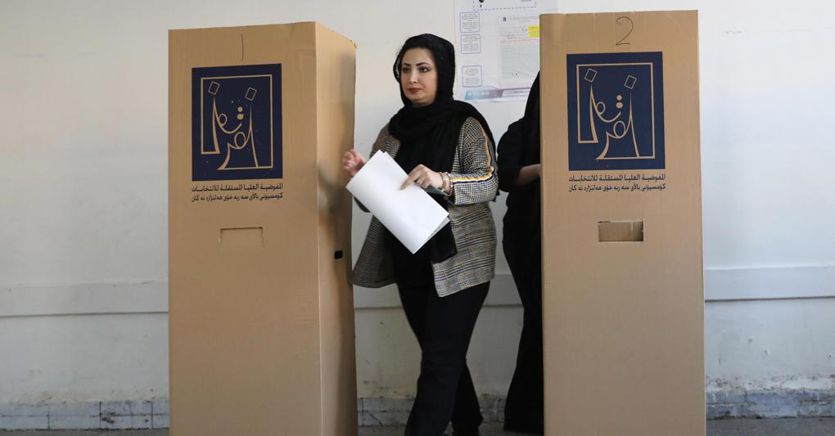The Iraqi political landscape
As in society, also in politics the different formations are delineated by the different confessions and ethnic groups. There are therefore three major political groups: the Shiites, the Sunnis and the Kurds. However, the Shiite majority is not a monolith. Its Shiite political movements are divided, sometimes in conflict. The main rivalry is between the group that calls for greater independence of the country from international powers, and is fighting against Iranian interference and the powerful bloc of parties that instead appear to be the longa manus of Tehran in Iraq. In the first group stands the figure of the clergy Moqtada al-Sadr, the winner of the 2018 elections, the clergy who armed a pro-Iranian Shiite militia (the Badr brigades) against the American forces in 2003, but who is now focused on the internal problems of the country and aims to free itself from the yoke of Tehran. The second group is dominated by the “Fatah” Alliance, led by paramilitary leader Hadi al-Ameri. In the last elections it was second. And it is this coalition that most worries Western countries, the United States in the lead. Because it includes parties affiliated with the Popular Mobilization Forces, an umbrella group of mostly pro-Iranian Shiite militias, which rose to prominence during the war against the Islamic State. Among the most intransigent and powerful militias are Asaib Ahl al-Haq and, for the first time, Kataib Hezbollah. Both groups, very close to Tehran, clashed militarily with American forces even under the administration of President Joe Biden. There are also formations linked to the controversial and prime minister Nouri al Maliki, who is still an influential figure.
Among the main parties remain the Kdp and the Puk, linked to the Barzani and Talabani clans and their respective peshmerga groups. There are five main Sunni parties, mainly present in the western provinces.
Whatever happens, this time too it seems unlikely that a coalition will win an absolute majority. In all likelihood, therefore, a series of negotiations, probably lengthy ones, will be necessary to first identify a prime minister who can obtain the consent of the parties involved in the negotiations. And then that the political forces accept a sort of coalition government. This is the likely scenario. But others cannot be excluded.
A transparent election?
In short, how much this vote is felt can also be seen from the number of international observers, over 600 of which at least 150 sent by the United Nations. They will have to assist the National Electoral Commission during the vote and during a counting that promises to be complex and full of obstacles.
This year Iraq introduces biometric cards for voters for the first time. To prevent the abuse of electronic voting cards, and therefore a double vote, the authorities decided to disable them for 72 hours after the voter has expressed the vote. Then there is another news of no small importance. The new electoral law, passed in 2020, will allow independent candidates to have a real chance to emerge. Fraud permitting, we could say that, if it takes place transparently, this will allow for the first time to give them more voice than in the past.
